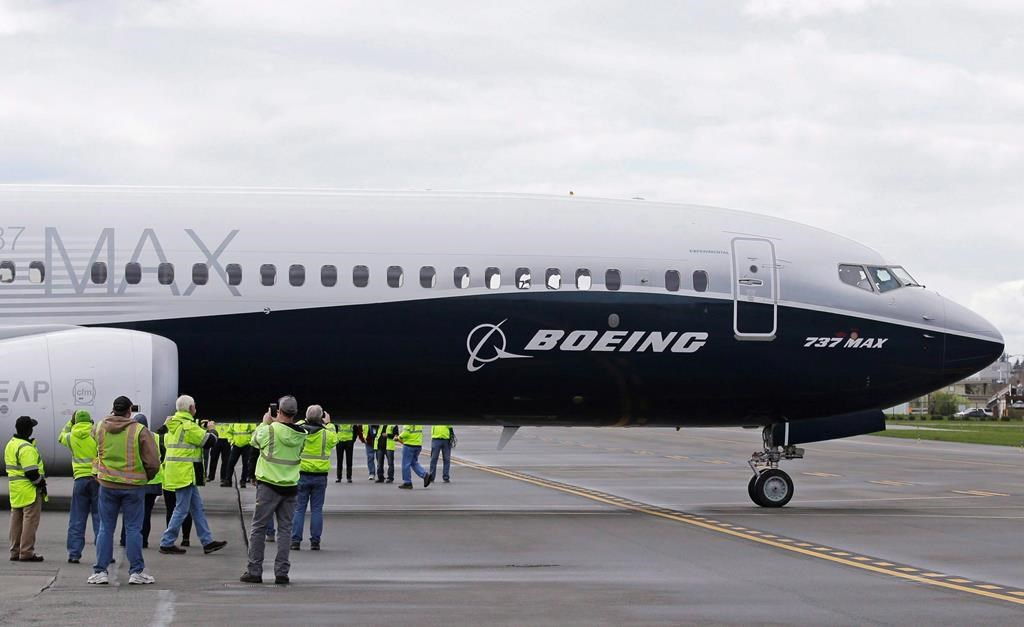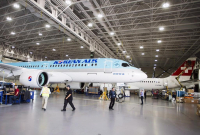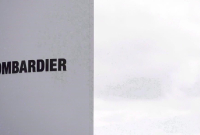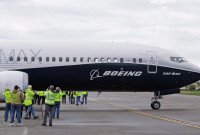Support strong Canadian climate journalism for 2025
Delta Air Lines says its deliveries of Bombardier CSeries aircraft may be delayed next year but that ultimately it won't be forced to pay the 300 per cent preliminary duties recently announced by the U.S. Commerce Department.
"We're not going to be forced to pay tariffs or anything of the ilk," CEO Ed Bastian said Wednesday during a conference call about its third-quarter results.
He said the U.S. government's decision is disappointing and doesn't make a lot of sense, but that it's still early in the process, which is triggering lots of political debate.
"We intend to take the aircraft," he told analysts. "I can't tell you how this is going to eventually work out. There may be a delay in us taking the aircraft as we work through the issues with Bombardier, who is being a great partner in this."
Bastian added that he thinks Delta will get the planes at the agreed contractual price, which has not been disclosed.
Delta signed a deal for up to 125 CS100s in 2016. The firm order for 75 aircraft had a list price of US$5.6 billion, although large orders typically secure steep discounts. Deliveries were scheduled to begin in the spring.
Bombardier declined to comment on the delivery schedule to Delta, saying it's confidential.
"Delta has been supporting Bombardier throughout the process and its CEO, Ed Bastian, reaffirmed the airline’s intention to take possession of its CSeries aircraft," spokesman Simon Letendre wrote in an email.
He noted that the Department of Commerce decisions are preliminary and only take effect if supported by the U.S. International Trade Commission.
"We remain confident that the ITC will reach the right conclusion given that Boeing did not compete for the Delta order and has not been harmed," he added.
The comments from the largest CSeries customer come a day after U.S. aerospace giant Boeing launched a public relations campaign to remind Canadians of its economic contribution to the country and century long partnership starting with the world's first international mail service.
The Chicago-based company said its multimedia efforts, which got underway on Tuesday, include traditional and digital media including television, radio and other digital platforms.
Boeing Canada managing director Kim Westenskow said the company contributes about $4 billion annually to Canada's economic growth and development. That represents almost 14 per cent of Canada's entire aerospace economic impact.
Boeing said it works with 560 Canadian suppliers that support 17,500 jobs, along with 2,000 people it employs.
"Today, Boeing is the largest non-Canadian aerospace manufacturer in Canada," Westenskow added, pointing to both commercial and military activities.
In response to the trade challenge to Bombardier, the federal government has threatened to cancel the planned purchase of 18 Boeing Super Hornets to temporarily augment Canada's aging fleet of CF-18s.
Bombardier Inc. last week accused the Trump administration of overreach by siding with Boeing in its bid to shut the CSeries commercial jet out of the world's largest airline market by effectively quadrupling the price of any of the planes sold in the United States.
The U.S. Commerce Department added 79.82 per cent in preliminary anti-dumping duties to 219.63 per cent in preliminary countervailing tariffs once deliveries to Delta Air Lines begin next year.
Boeing said it welcomed the decision affirming its view that Bombardier sold the CSeries to Delta at prices below production cost to illegally grab market share in the single-aisle airplane market.
Bombardier has repeatedly stressed that Americans will be hurt by the tariffs because more than half the content on the 100- to 150-seat CSeries is sourced by U.S. suppliers, including Pratt & Whitney engines. The program is expected to generate more than US$30 billion in business over its life and support more than 22,700 American jobs in 19 states.
Meanwhile, WestJet Airlines said Wednesday it has become the first commercial carrier in Canada to take delivery of the new Boeing 737 MAX 8 aircraft, one of 50 scheduled for delivery in the next four years.
The 174-seat aircraft is expected to officially enter service on Nov. 9 with a flight from Calgary to Toronto.
Air Canada has also placed orders for 33 Boeing 737 MAX 8s and 28 of the larger MAX 9s, with deliveries starting this year.





Comments